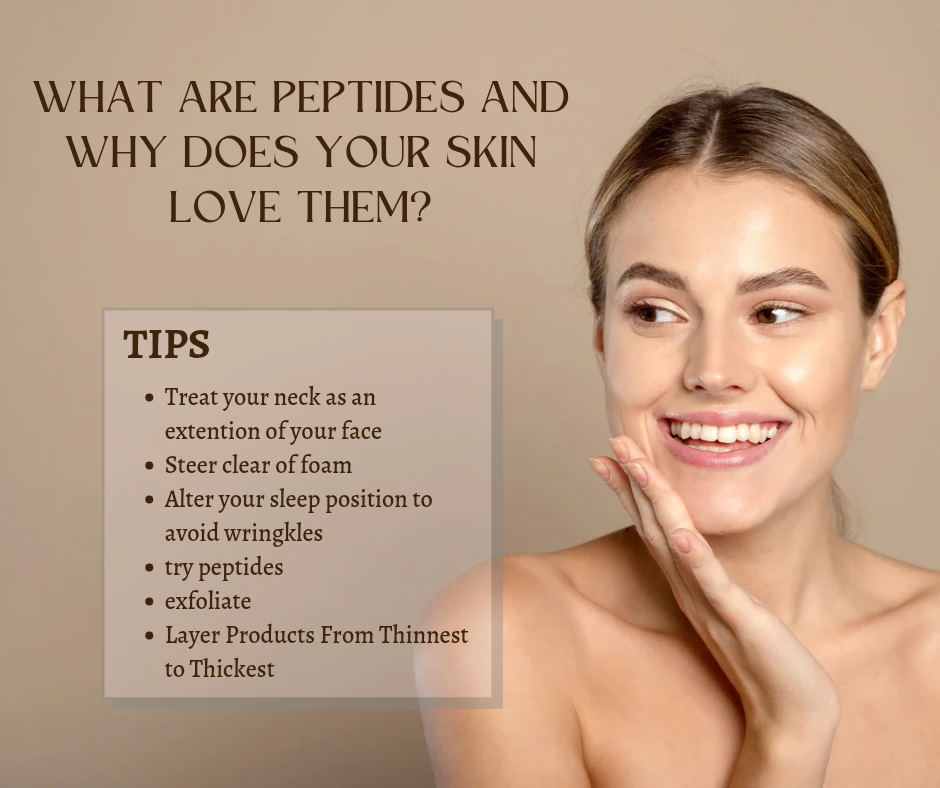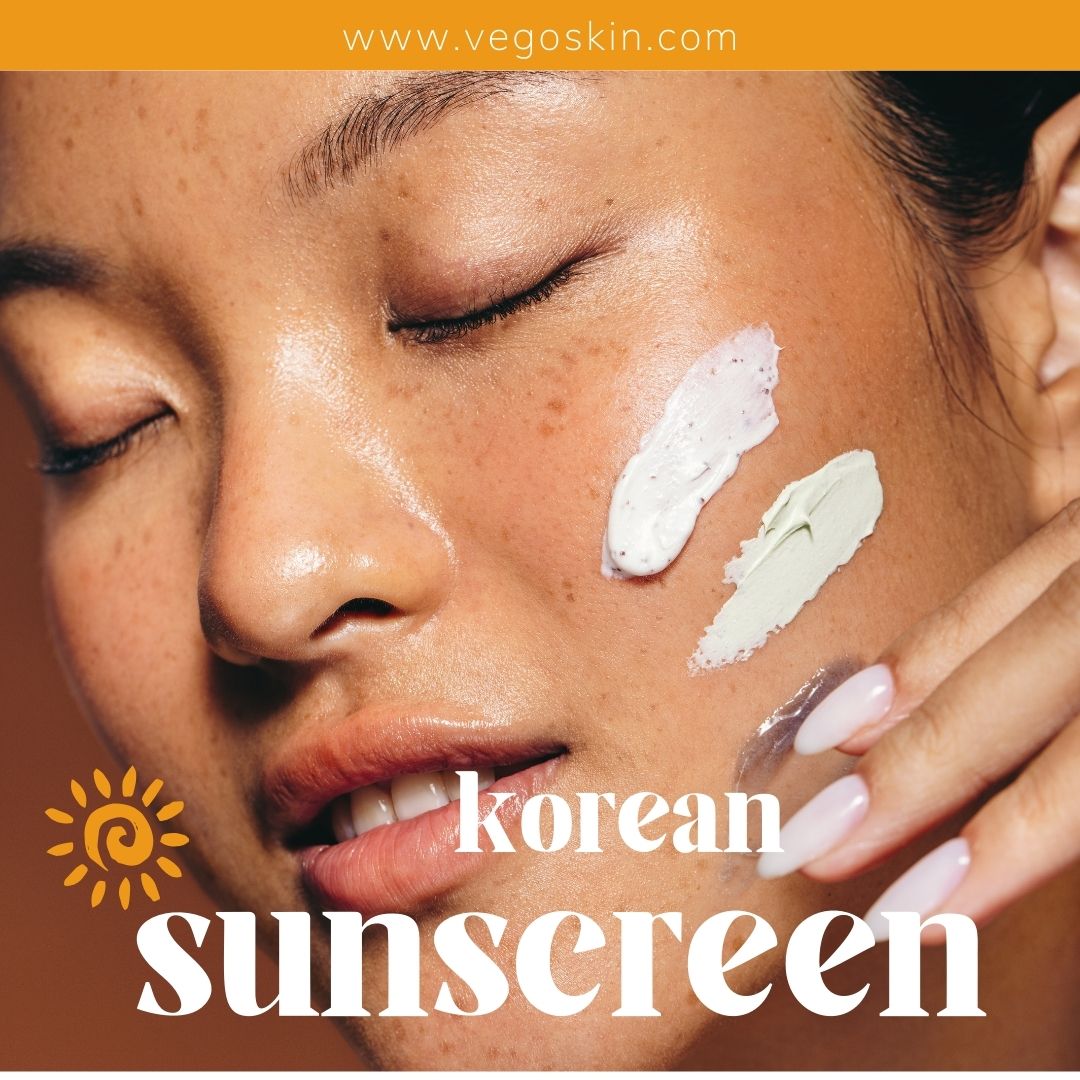What Are Peptides and Why Does Your Skin Love Them?What Are Peptides and Why Does Your Skin Love Them?
When it comes to skincare, the buzz around peptides is hard to ignore. You’ve probably seen them listed on the labels of your favorite serums or creams, touted as miracle workers for everything from fine lines to sagging skin. But what exactly are peptides, and why does your skin seem to love them so much? In this deep dive, we’ll unpack the science behind peptides, their benefits for your skin, and why they’ve become a staple in modern skincare routines. By the end, you’ll understand why these tiny molecules are making such a big impact.
Understanding Peptides: The Building Blocks of Skin Health
So, what are peptides and why does your skin love them? At their core, peptides are short chains of amino acids, the building blocks of proteins like collagen, elastin, and keratin, which are essential for maintaining healthy, youthful skin. Think of peptides as messengers that tell your skin cells to perform specific tasks, like producing more collagen or repairing damage. They’re naturally occurring in your body, but as we age, their levels decline, leading to visible signs of aging like wrinkles and loss of firmness.
In skincare, peptides are synthesized and added to products to mimic or boost these natural processes. They come in different types, each with a unique role. For example, signal peptides stimulate collagen production, carrier peptides deliver trace elements like copper to enhance skin repair, and enzyme-inhibiting peptides can slow the breakdown of collagen. This versatility makes peptides a powerful ingredient, addressing multiple skin concerns simultaneously.
To get a sense of their importance, consider this: a 2019 study published in the Journal of Cosmetic Dermatology found that peptides can significantly improve skin elasticity and hydration when applied topically (source). This is why brands like The Ordinary and Drunk Elephant have embraced peptides in their formulations, making them accessible to skincare enthusiasts everywhere.
Why Your Skin Loves Peptides: The Benefits
The question of what peptides are and why your skin loves them boils down to their incredible benefits. Let’s break down why your skin can’t get enough of these tiny superstars:
1. Boosting Collagen for Youthful Skin
Collagen is the scaffolding of your skin, giving it structure and firmness. . Peptides, particularly signal peptides like Matrixyl, send messages to your skin cells to ramp up collagen synthesis. This helps plump the skin, smooth fine lines, and restore that coveted youthful bounce.
For example, Matrixyl (palmitoyl pentapeptide-4) has been shown to reduce wrinkle depth by up to 27% after two months of use, according to a study by Sederma, the ingredient’s manufacturer (source). Products like The Ordinary’s Buffet Serum combine multiple peptides to maximize this effect, making it a fan favorite.
2. Improving Skin Barrier Function
Your skin’s barrier is its first line of defense against environmental stressors, such as pollution and UV rays. Peptides, especially those like copper peptides, strengthen this barrier by promoting the production of glycosaminoglycans, which help retain moisture and protect against damage. A stronger barrier means less irritation, redness, and sensitivity—perfect for those with reactive skin.
Brands like NIOD’s Copper Amino Isolate Serum harness copper peptides to support overall skin health, making it a go-to for anyone looking to fortify their skin’s defenses.
3. Enhancing Skin Repair and Healing
Peptides aren’t just about prevention—they’re also fantastic at repair. Carrier peptides, such as copper tripeptide-1, deliver essential minerals to damaged skin cells, speeding up wound healing and reducing inflammation. This makes them ideal for post-procedure care, like after microneedling or chemical peels, or for addressing acne scars.
A 2020 review in Molecules highlighted copper peptides’ ability to accelerate skin repair by promoting angiogenesis (new blood vessel formation) and collagen deposition (source). This repair boost is why peptides are often recommended for those dealing with chronic skin issues.
4. Hydration and Plumping
Dry, dehydrated skin looks dull and tired, but peptides can help. By supporting the production of hyaluronic acid and other moisture-retaining compounds, peptides keep your skin hydrated and plump. This is especially important for mature skin, which tends to lose moisture more quickly.
Skincare lovers often pair peptide-rich products with hydrating ingredients like hyaluronic acid for a one-two punch. Check out Paula’s Choice Peptide Booster for a product that combines peptides with moisture-locking ingredients for maximum glow.
5. Reducing Inflammation
Chronic inflammation can accelerate skin aging, leading to redness, breakouts, and uneven tone. Certain peptides, like palmitoyl tetrapeptide-7, have anti-inflammatory properties that calm irritated skin and reduce redness. This makes them a godsend for conditions like rosacea or acne-prone skin.
If you’re curious about incorporating peptides into your routine, Drunk Elephant’s Protini Polypeptide Cream is a great option, blending peptides with antioxidants to soothe and protect.
How Peptides Work in Your Skincare Routine
Now that we’ve covered what are peptides and why does your skin love them, let’s talk about how to use them. Peptides are incredibly versatile and can be found in serums, moisturizers, eye creams, and even cleansers. Here’s how to make them work for you:
- Serums: Peptide serums, like The Ordinary’s Buffet or Olay’s Regenerist Peptide 24, are lightweight and penetrate deeply, making them ideal for targeting specific concerns like wrinkles or firmness. Apply after cleansing and before moisturizing for best results.
- Moisturizers: Peptide-infused creams, such as Drunk Elephant’s Protini, combine hydration with anti-aging benefits, perfect for daily use.
- Eye Creams: The delicate skin around your eyes benefits from peptides’ gentle yet effective nature. Look for products like Peter Thomas Roth’s Peptide 21 Wrinkle Resist Eye Cream to tackle crow’s feet and puffiness.
- Layering: Peptides play well with other ingredients like vitamin C, retinol, and hyaluronic acid. However, avoid using them with strong acids (like glycolic acid) in the same step, as this can reduce their efficacy. Instead, alternate them in your morning and evening routines.
Pro tip: Consistency is key. Peptides work best with regular use over weeks or months, so stick with your chosen product to see results. A 2021 study in Dermatologic Therapy noted that peptide-based products typically show visible improvements after 4–12 weeks of consistent use (source).
Are Peptides Safe for All Skin Types?
One of the reasons what are peptides and why does your skin love them is such a hot topic is their universal appeal. Peptides are generally safe for all skin types, including sensitive and acne-prone skin. Unlike retinoids or acids, which can irritate, peptides are gentle and well-tolerated. However, always patch-test new products to ensure they suit your skin.
If you have specific concerns, like hyperpigmentation or severe dryness, consult a dermatologist to find the right peptide formulation. Websites like DermNet NZ offer reliable resources for understanding how ingredients like peptides interact with different skin conditions.
Choosing the Right Peptide Products
With so many peptide products on the market, how do you choose? Here are some tips to guide you:
- Look for Proven Peptides: Ingredients like Matrixyl, Argireline, or copper peptides have solid research backing their efficacy. Check the ingredient list for these names.
- Check Concentrations: While brands rarely disclose exact peptide concentrations, higher-quality products often list peptides near the top of the ingredient list, indicating a meaningful amount.
- Pair with Complementary Ingredients: Peptides work best when combined with antioxidants, niacinamide, or hyaluronic acid. Avoid products with heavy fragrances or alcohol, which can counteract their benefits.
- Budget vs. Luxury: You don’t need to splurge to get great peptide products. Affordable options like The Ordinary or CeraVe offer effective formulations, while luxury brands like SkinCeuticals provide premium options.
For a curated list of peptide products, Byrdie and Allure often publish expert-recommended guides to help you shop smart.
The Science Behind Peptides: Why They’re Here to Stay
The question of what are peptides and why does your skin love them isn’t just about hype—it’s grounded in science. Peptides’ ability to penetrate the skin and communicate with cells sets them apart from other ingredients. Unlike retinoids, which can take months to show results, or acids, which focus on exfoliation, peptides offer a multi-tasking approach that supports long-term skin health.
Research continues to uncover new peptide applications. For instance, a 2023 study in Frontiers in Pharmacology explored peptides’ potential in treating hyperpigmentation by inhibiting melanin production (source). This suggests peptides could soon play a bigger role in addressing uneven skin tone.
Moreover, peptides are sustainable and ethical. Most are synthetically produced, reducing reliance on animal-derived ingredients, which aligns with the growing demand for cruelty-free skincare. Companies like The Inkey List emphasize this in their peptide-focused products, appealing to eco-conscious consumers.
Common Myths About Peptides
Despite their popularity, peptides are surrounded by myths. Let’s debunk a few:
- Myth: Peptides Work Instantly: While peptides are effective, they’re not overnight miracles. Expect gradual improvements over weeks of consistent use.
- Myth: All Peptides Are the Same: Different peptides have different functions. Always check what specific peptides a product contains to match your skin goals.
- Myth: Peptides Replace Retinol: Peptides complement retinol but don’t replace its exfoliating and cell-turnover benefits. Use both for a comprehensive anti-aging routine.
For more myth-busting, Healthline offers detailed guides on skincare ingredients, including peptides.
Real-Life Results: What Users Say
Skincare communities on platforms like Reddit and X are abuzz with peptide success stories. Users report smoother texture, reduced fine lines, and a brighter complexion after incorporating peptides into their routines. For instance, a popular thread on Reddit’s r/SkincareAddiction praised The Ordinary’s Buffet for its affordability and visible results after three months.
However, results vary. Factors like skin type, product formulation, and lifestyle (think diet and sun exposure) influence how peptides perform. To maximize benefits, pair your peptide products with a solid SPF, like Supergoop’s Unseen Sunscreen, to protect your skin from UV damage.
The Future of Peptides in Skincare
As we continue to explore what are peptides and why does your skin love them, it’s clear they’re more than a passing trend. Advances in biotechnology are paving the way for even more targeted peptides, potentially addressing issues like acne scarring or melasma with greater precision. With brands investing heavily in peptide research, we can expect smarter, more effective formulations in the coming years.
If you’re ready to dive into peptides, start small. Try a peptide serum or moisturizer, track your skin’s response, and adjust as needed. Your skin will thank you for giving it the tools to repair, hydrate, and glow.
Final Thoughts
So, what are peptides, and why does your skin love them? They’re tiny but mighty molecules that boost collagen, strengthen your skin barrier, and promote repair—all while being gentle enough for daily use. Whether you’re battling fine lines, dryness, or inflammation, peptides offer a versatile solution that fits into any skincare routine. With science-backed benefits and a growing range of products, peptides are a must-try for anyone chasing healthy, radiant skin.
Ready to explore peptides? Check out trusted retailers like Sephora or Ulta Beauty to find peptide-rich products that suit your needs. Your skin’s new best friend is waiting.



